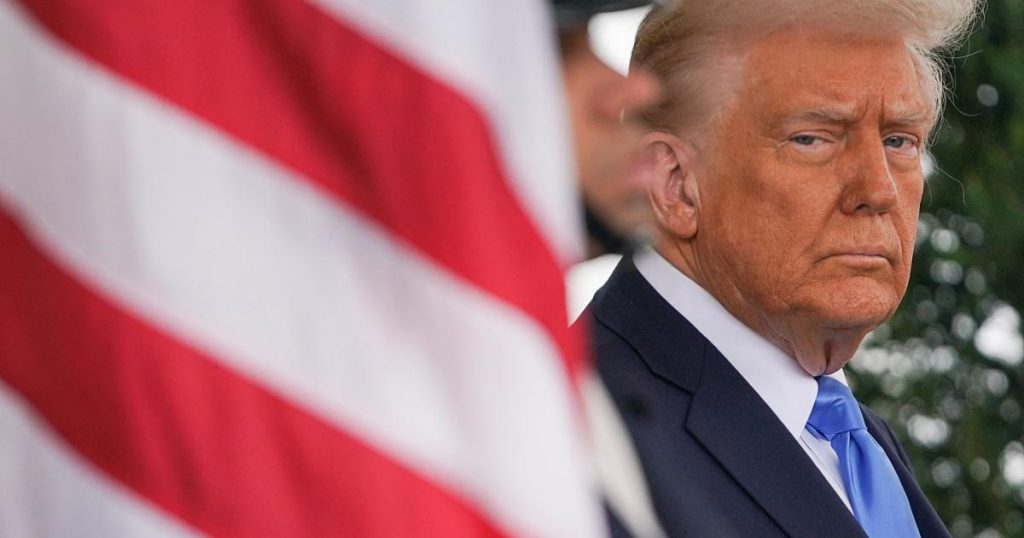Intelligence diplomacy—“liaison” is the term of art—is a key, if often hidden, element of national power. Washington has more liaison partners than is publicly known, because countries and even nonstate groups that do not wish to be seen engaging with American officials still speak with the United States government via clandestine channels. Traditionally, liaison relationships are unaffected by international politics and shifts in foreign policy; administrations come and go, and the intelligence flows uninterrupted. But occasionally, political developments are so dramatic that they intrude on intelligence liaison.
In the early 1970s, the Nixon administration temporarily reduced intelligence sharing with the United Kingdom, thanks to London’s decision to prioritize relations with European countries aiming to join the European Economic Community, the precursor to the European Union, and American frustration with the British lack of support for Israel during the Yom Kippur War. More recently, in 2013, when a former National Security Agency contractor, Edward Snowden, revealed among other things that the United States had collected signals intelligence on the leaders of some of its European allies, effectively eavesdropping on them, several European countries briefly soured on their clandestine contacts with Washington. Now, the second Trump administration could trigger a new disruption of routine intelligence sharing between Washington and its allies.
Under ideal circumstances, intelligence liaison is aided by common foreign policy goals, military alliances, and complementary worldviews between countries, including their leaders. But President Donald Trump’s approach to the international system and its security architecture has called these requisite commonalities between Washington and its partners into question. Some U.S. partners are worried that Trump will use intelligence exchange transactionally—by, say, withholding information as leverage on an unrelated issue. Others are concerned about Trump’s checkered relationship with handling intelligence, his affinity for authoritarian leaders such as Russian President Vladimir Putin, and his picks of inexperienced loyalists for senior intelligence and national security roles. To mitigate their concerns, U.S. allies and partners may become more cautious in sharing intelligence with Washington on certain topics during Trump’s second term. They may opt to reduce intelligence passed to Washington or sanitize the intelligence they share to the point that it loses its value to the United States.
The Trump administration needs strong intelligence partnerships, as the United States confronts an unstable geopolitical world order in which international terrorism is on the rise and a so-called axis of upheaval—China, Iran, North Korea, and Russia—confronts the United States and its partners. In light of this, the intelligence agencies of U.S. allies would prefer to cooperate even more closely with the United States now than they have in the past—but only if they are confident in the U.S. intelligence community’s trustworthiness and dependability.
Should Washington’s external intelligence relationships wither, the United States’ national security would be compromised. Liaison allows states to pool resources to analyze an intelligence target of interest, to coordinate agent networks to provide complementary human intelligence, and to validate existing reporting to increase analytical confidence. It also provides a way to compare unvarnished notes in private with a trusted partner. In addition, liaison cooperation usually has an economic aspect; states can share the costs of developing and maintaining expensive satellites and divide up the enormous task of processing and translating voluminous signals intelligence. And there are geographic dimensions, such as facilities basing or collection operations on friendly territory. Given these clear advantages of force multiplication, intelligence agencies have moved beyond the traditional instinct to go it alone in order to maintain tight operational security in favor of intelligence cooperation.
Intelligence liaison is a process, not an outcome, and a reputation for security and discretion invites further intelligence sharing. In statecraft, as in life, friends share confidences, and the sharing of confidences deepens friendships. Still, intelligence liaison is a form of hard-nosed statecraft, and each side wields its knowledge for its own national interest. Occasionally, partners share intelligence not merely to inform but to influence another country’s perspectives on a pressing issue. The United States may jeopardize a seat at the table on a topic of crucial importance, such as Ukraine’s defense against Russian aggression, if Washington signals that its aims diverge from those of its allies.
The apolitical nature of the U.S. intelligence community provides the bedrock trust for liaison relationships that endure across political transitions. Trump should preserve the intelligence community’s hard-won reputation for nonpartisanship by avowing that professionalism and analytical rigor will be maintained throughout the 18 agencies that make up the intelligence community. The administration should view those agencies, including the Federal Bureau of Investigations, as providers of critical insight and information, not as targets to be politicized or purged.
GRAVE CONCERNS
The intelligence concerns of U.S. partners today are rooted in a series of events that took place during and after Trump’s first term. In March 2017, a Trump ally accused the United Kingdom’s signals intelligence agency, the Government Communications Headquarters, of spying on Trump’s campaign, causing alarm in London and earning a rare public rebuke from Washington’s closest intelligence partner. The White House assured a horrified Downing Street that such outlandish claims would not be repeated. The administration’s early misstep with GCHQ did not impair intelligence exchange or operational cooperation. But subsequent episodes were more serious. According to The Washington Post, in a May 2017 meeting in the Oval Office, Trump shared sensitive liaison intelligence—that is, highly classified information from a U.S. partner—with Russian Foreign Minister Sergey Lavrov and Russian Ambassador to the United States Sergey Kislyak. This was a grave breach of intelligence liaison protocol; intelligence given by one country is assumed to be passed in strict confidence.
U.S. allies’ concerns were only heightened when, in August 2019, Trump tweeted a high-resolution satellite image detailing significant damage to Iran’s Semnan Space Center, where an apparent rocket explosion had occurred during preparations for a satellite launch. Although this image was not provided by another government, it revealed U.S. imagery intelligence capabilities and again highlighted concerns about the president’s careless handling of secret intelligence. In a separate incident three years later, the FBI discovered boxes of highly classified documents in a bathroom at Trump’s Mar-a-Lago resort.
Now, Trump’s combative approach risks further exacerbating the inherent challenges in diplomacy, with ramifications for Washington’s foreign intelligence partnerships. One senior European intelligence official recently told me that Denmark, a NATO ally and solid intelligence partner for Washington, might signal its displeasure about unwelcome U.S. efforts to buy Greenland by reducing intelligence cooperation, at least temporarily.
A reputation for security and discretion invites further intelligence sharing.
Intelligence liaison is conducted by experts talking to experts about technical or specialized matters. It should not be undertaken by politicians or neophytes. As James Goldgeier and Elizabeth Saunders recently wrote in Foreign Affairs, the intelligence agencies of U.S. allies and adversaries may see peril or opportunity, respectively, when the American president grants sweeping access to U.S. government databases and systems to a team of young people who have no government experience and who may not have been put through standard personnel vetting processes. For their part, foreign intelligence officers are professionals who expect to conduct their secret business with other career professionals.
Some partners might also reason that a quasi-isolationist United States would be less relevant in the international system and therefore not a defense or diplomatic partner of choice. Downgrading the United States’ value as a partner would mean reducing the requirement to share intelligence in the first place, because there would be no common foreign policy to pursue in tandem. U.S. allies might come to see a globally disengaged Washington as requiring less liaison intelligence on topics that the Trump administration showed little interest in.
For now, foreign partners are still inclined to share secrets with Washington because it is a wise investment in their own national security; the United States often returns more and better intelligence than it receives, and partners do not wish to jeopardize this flow. The successful terrorist attack last December on a German Christmas market stands in contrast to the disrupted terrorist attack on a Taylor Swift concert in Vienna; intelligence liaison between the United States and Austria thwarted the latter. For U.S. allies, the security benefits of cooperation with Washington are significant. Still, Washington’s partners will balance the benefits of intelligence liaison against their concerns about the Trump administration.
QUESTIONABLE LEADERSHIP
Despite some notable bumps during Trump’s first term, intelligence liaison largely continued apace, but much of this came down to steady leadership. Selecting career professionals with standing in foreign capitals, such as Gina Haspel as CIA director and Christopher Wray to head the FBI, went a long way toward assuaging U.S. partners’ concerns about Trump’s potential impact on the day-to-day business of intelligence. In his second term, there will be far less confidence among Washington’s secret partners if Trump insists on installing unqualified people without the measured temperament, experience, and good judgment required of intelligence professionals.
Most of the 18 agencies that make up the U.S. intelligence community report to the Defense Department and are run by nonpartisan senior military officers who do not owe their positions to demonstrated fealty to Trump. And although his campaign pledge was to “clean out all of the corrupt actors in our national security and intelligence apparatus,” Trump seems to believe that the “deep state” mostly lurks in the FBI and CIA and appears content to leave the lesser-mentioned agencies, such as the National Geospatial-Intelligence Agency and the National Reconnaissance Office, to continue their international partnerships without direct political interference.
Even if Trump’s more controversial intelligence nominees do get confirmed by the Senate, the amount of concern in foreign capitals will depend on whether they moderate their tone once installed. Trump’s second-term pick for CIA director, John Ratcliffe, a former Republican member of Congress who distinguished himself to Trump as a loyal partisan during Trump’s impeachment proceedings, was open-minded and willing to hear out the professionals during his brief tenure as director of national intelligence, according to senior intelligence officers. During his January 2025 Senate confirmation hearings, Ratcliffe struck the right notes on protecting the CIA from undue political influence, but the idea of working with the Trump loyalists Kash Patel as FBI director or Tulsi Gabbard as director of National Intelligence has rattled Washington’s most important partners.
If U.S. partners suspected American officials of distorting or cherry picking shared intelligence to support a preferred policy of the Trump administration, that would have serious ramifications for Washington’s liaison relationships; blatantly politicized intelligence is widely regarded as low-value intelligence. Additionally, U.S. partners would have reservations about their own intelligence becoming politicized in the U.S. policy process. For instance, a U.S. partner might collect fragmentary or even contradictory intelligence indicating that Tehran may or may not decide to provide a more advanced weapons system to its Houthi proxies in Yemen. Under normal circumstances, the U.S. partner would pass all this information to Washington in the hope that the U.S. intelligence community would reciprocate and share what it knows on this topic, setting the stage for further discussion about coordinated policy responses. In this hypothetical scenario, however, the U.S. partner could opt to withhold some or all of the intelligence out of concern that Trump’s national security team might lean on the more sensational information and ignore the rest to justify its maximum pressure policy toward Iran.
RESTORING CONFIDENCE
Intelligence liaison makes the United States stronger and its allies more capable and aligned. A transactional perspective and pursuit of “good deals” do not readily translate to the intelligence realm, where trust is built over the long term and partners achieve success through mutually beneficial cooperation. Putting the United States first from an intelligence perspective means harnessing intelligence diplomacy to safeguard American interests and citizens while protecting the liberal world order, which has advantaged the United States more than most other countries. Reduced intelligence exchange during the second Trump administration is not a foregone conclusion, however.
To secure the benefits of strong liaison relations, Washington should recognize that its partners have legitimate concerns about politicization, systems access, and discretion. To address these issues, the Trump administration should take steps to reassure U.S. allies that professionalism, apolitical objectivity, and noninterference will be the order of the day. Intelligence work necessitates good judgment, a measured temperament, and the integrity to go where the weight of the evidence leads; that means occasionally bringing unwelcome news to powerful political figures. To that aim, Trump should install experienced professionals in key national security and intelligence positions. The administration should not probe candidates for their views on the January 6 attack on the U.S. Capitol or otherwise subject them to ideological litmus tests. This technocratic approach would send a positive message reassuring allies that the U.S. intelligence community remains nonpartisan.
Congress should also exercise oversight of Trump’s management of the intelligence community and insist that independent inspectors general be allowed to do their work without political interference. Finally, over time, the administration should demonstrate consistent adherence to the norms surrounding intelligence liaison, including discretion in intelligence and security matters. This would restore U.S. partners’ confidence in Washington’s information security and accountability practices and grease the wheels of further secret cooperation.
Loading…









